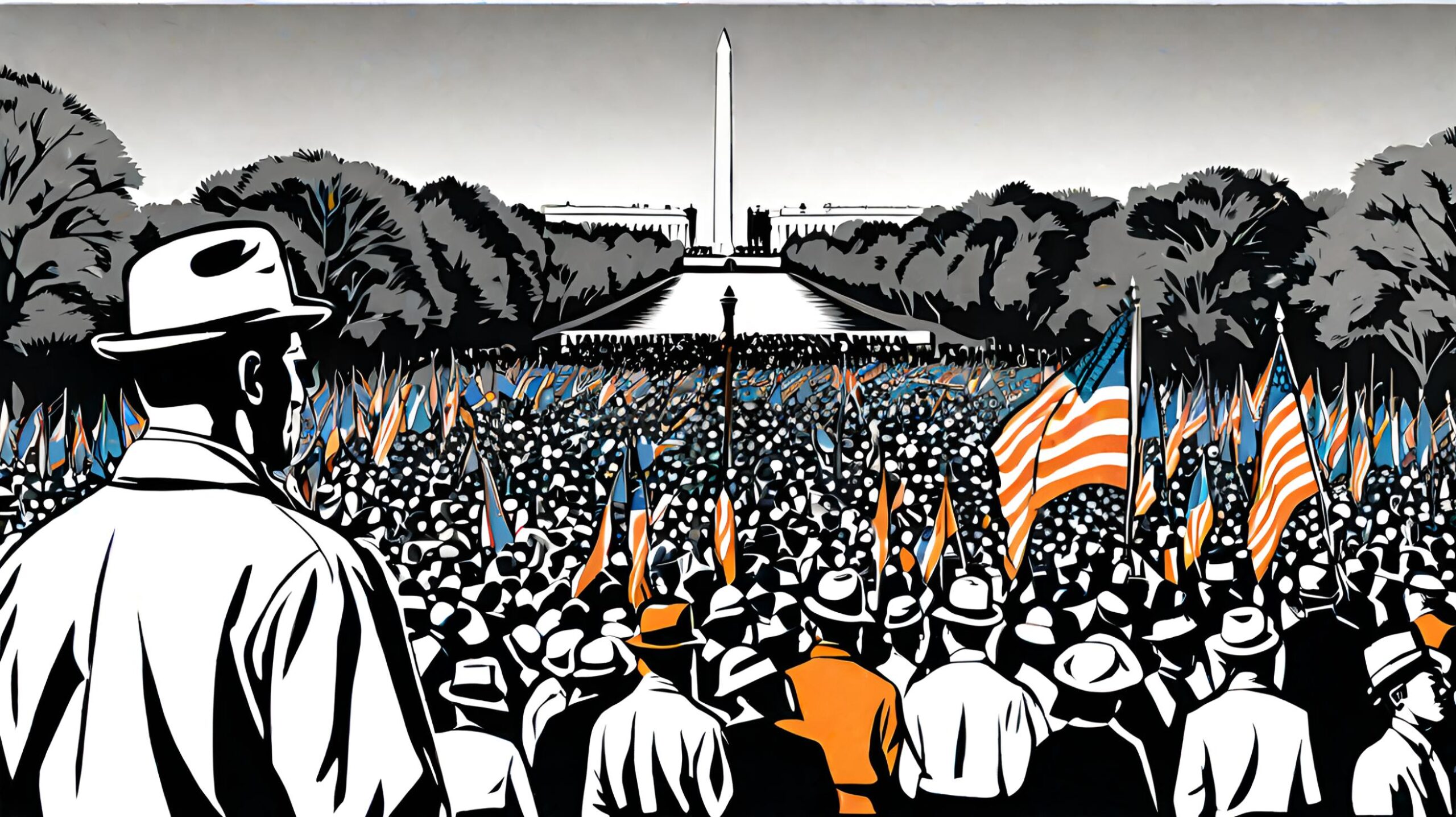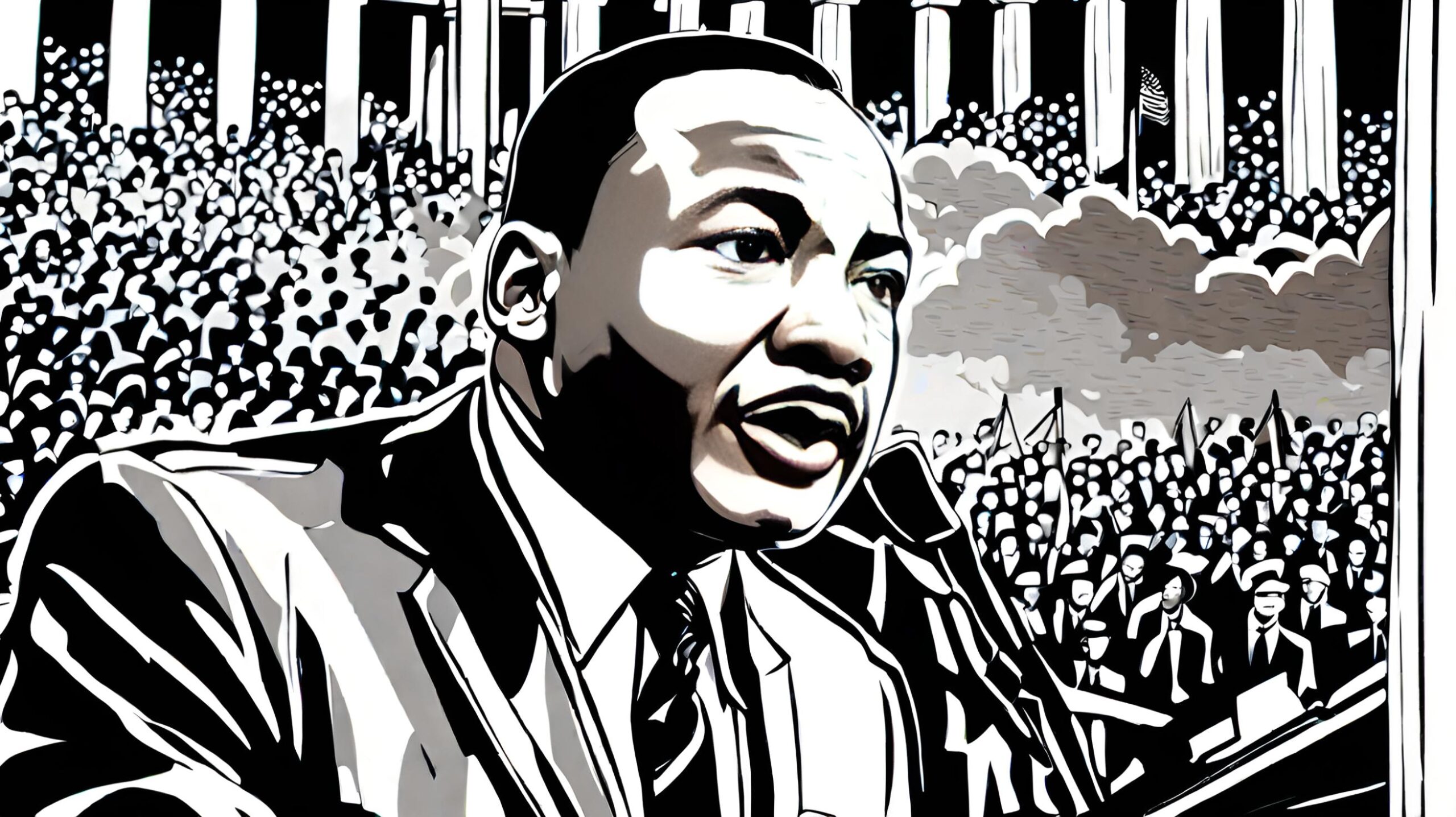Flashback to August 28
American History

The Democratic National Convention that occurred on 8/28/1968 in Chicago, Illinois, has gone down in history as one of the most dramatic and contentious events in American political history. This convention was characterized by a significant protest movement and widespread rioting that pushed the city beyond its limits.
As tensions escalated and fueled riots that disrupted this significant democratic event, Chicago found itself at the center of national attention. Despite the various political and social aspects influencing this upheaval, one thing remains clear: the Chicago riots deeply impacted the shape of American politics and society, marking an irreversible moment in history.
In the months leading up to the convention, tension had been building across the nation. The 1960s were marked by varying social conflicts, including the Civil Rights Movement, the Vietnam War protests, and growing dissatisfaction with the American political establishment. These sentiments were particularly strong among younger demographics, leading to a strong protest presence in Chicago during the convention.
The first spark to the volatile atmosphere was the death of Martin Luther King Jr., who was assassinated on April 4, 1968. Following this, his supporters, who were keen to maintain the ideals of justice and peace that he championed, gathered and demonstrated en masse during the convention. Concurrently, the anti-Vietnam War movement was also in the midst of its height. Protesters demanding an end to the conflict converged on Chicago, adding to the numbers of the initial protestors.
However, what started as peaceful protests spiraled into violent riots, a significant event that challenged the democratic convention and the integrity of the supportive system. The Chicago police were unprepared for the scale of these protests, which escalated into brutal conflicts between law enforcement and demonstrators. Images of this chaotic disturbance were broadcast nationwide, creating a shared experience of unrest among Americans.
The Riot’s connection with the Democratic National convention is a crucial one as it reflects the political turmoil that characterized the period. Democratic delegates, convening in Chicago, were split between supporting the current administration’s wartime policies or endorsing a new platform that advocated for peace. This disunity was mirrored in the streets of Chicago, where protesters and the police clashed violently.
Chicago’s 1968 riots are not just an isolated incident in city history. They are a symbolic representation of a broader, national dissatisfaction with the existing political and social order, marking the desire of many Americans for significant changes. Additionally, it serves as a daunting reminder of the lengths people will go to make their voices and opinions heard during moments of intense national division.
The global coverage that these riots received shed light on the gravity of the situation, influencing both national and international perspectives. As media outlets and journalists reported on the chaos, strong criticism was directed towards law enforcement strategies and overall government management. As these reports became more widely circulated, they fueled further disagreements and heightened the unrest on a national level.
The legacy of the August 1968 Chicago Riots remains a significant part of American history, deserving of comprehensive analysis and understanding. The events that transpired during the Democratic National Convention remain an effective case study on the influence of public opinion and protest on political happenings. It also serves as a poignant reminder of the importance of handling such situations with sensitivity, understanding, transparency, and fairness.
Investigating this event allows us to reflect on the tensions present in society during this time. Though it took place over five decades ago, the 1968 Democratic National Convention, with the accompanying riots in Chicago, still carries a stark resonance today. Amid the moments of chaos, conflict, and pain, are lessons about American society, its strengths and shortcomings, its roots of resilience, and its capacity for change. These lessons remain critically important as we navigate our present and future socio-political challenges.
We strive for accuracy. If you see something that doesn't look right, click here to contact us!
Sponsored Content

200,000 demonstrate for equal…
"An historic event took…

Martin Luther King, Jr.…
On August 28, 1963,…

First known photograph of…
"Experience the remarkable tale…

A drunk motorman speeds…
Experiencing one of its…

Riots in Chicago, Illinois,…
Explore the dramatic unfolding…

John Hinckley Jr pleads…
"On August 28, 1981,…

